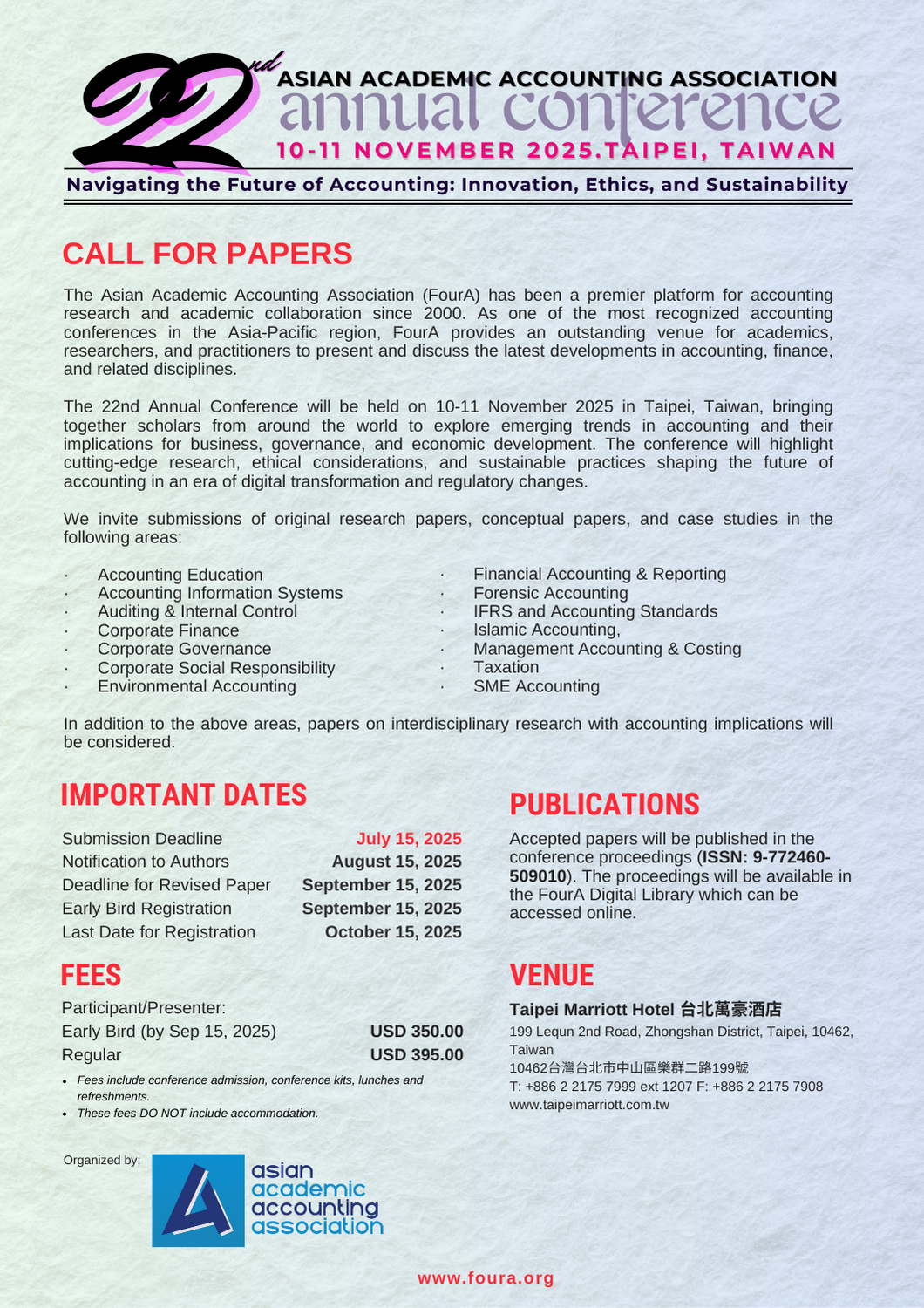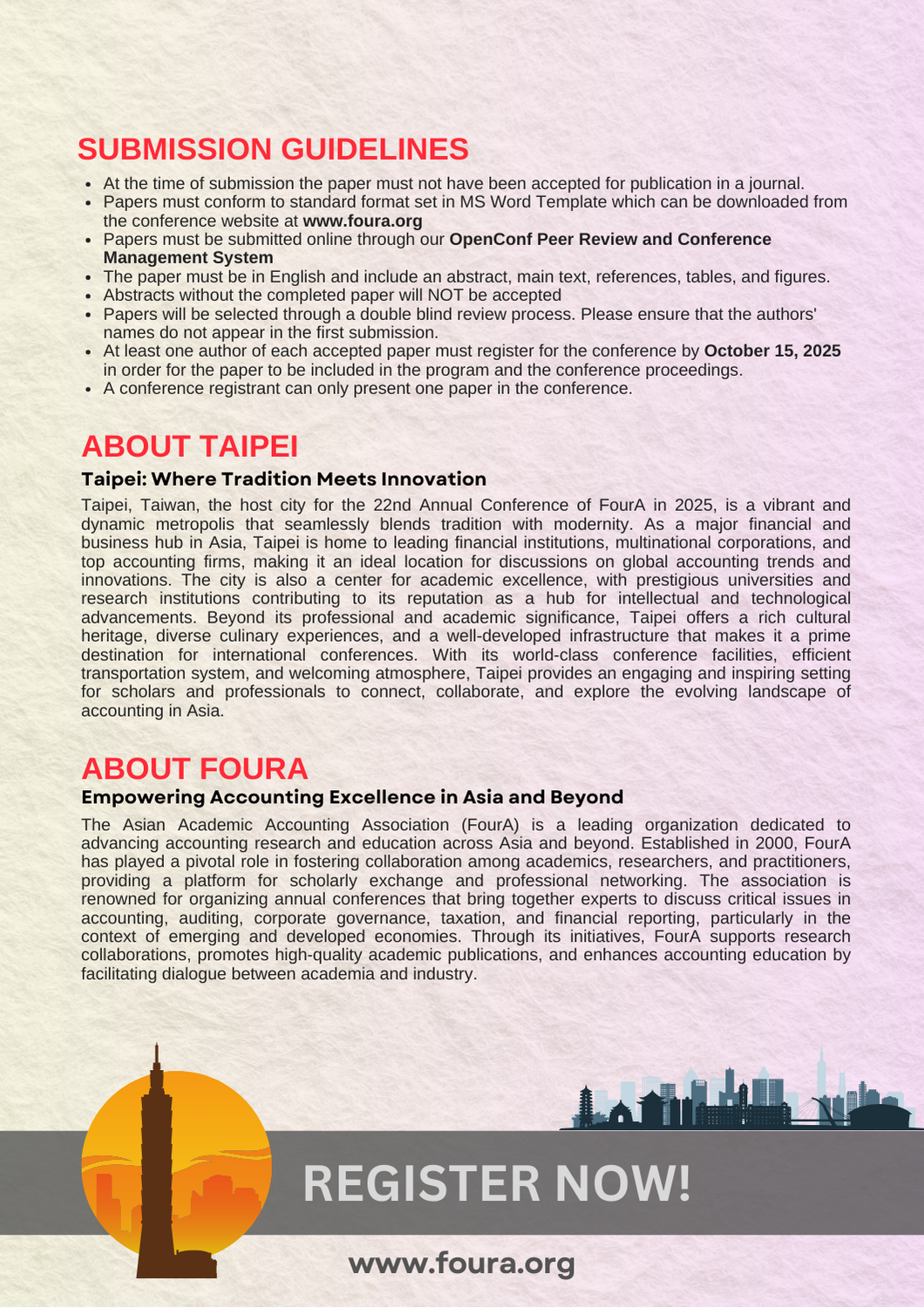Directors’ Tenure and Earnings Response Coefficients of FTSE KLCI
- Category: FourA 2017
- Author: Mazrah Malek, Saeidah Malik, Saidatunur Fauzi Saidin
-
Link:

Review
The independence of non-executive directors has long been a concern. The independent directors are not only required to be independent from management but also free from any other relationships which can interfere with their objectivity. Recently, the concern has been focused on long tenure. Regulators seem to believe that long tenure may impair independence, hence attempts to limit the tenure have been recommended, even though it has not been made mandatory. However, theories concerning long tenure are contradictory and empirical evidences are weak. Earlier studies are based on theory-driven approach, which only examines the association between directors’ tenure and proxies of financial reporting quality. This study on the other hand, proposes a different approach based on earnings response coefficient model which not only examines investors’ perceptions but also their reactions. This is based on the widely accepted independence model where independence should not only be in the form of fact but also appearance. Using the sample of 30 FTSE KLCI companies in 2016, OLS regression show higher ERC for companies with higher average tenure which implies that investors’ perceived higher reliability of earnings produced by those companies. The result is consistent with the resource dependence theory which looks at the role of directors beyond the common monitoring roles but by focusing on more broader aspects of directors’ responsibility.
Keywords: Capital market, director, independence, tenure



